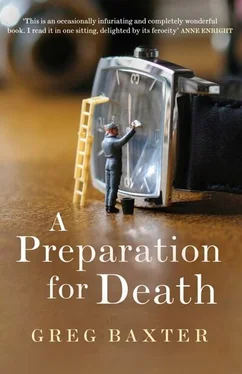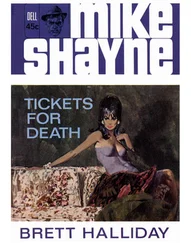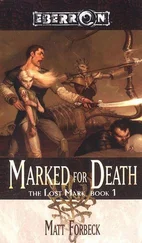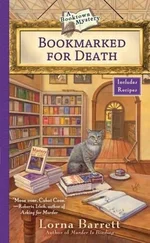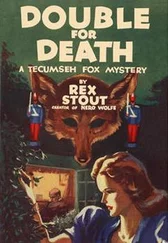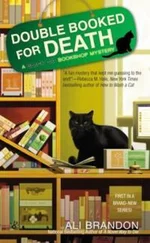Later we left for Santo Spirito. We got the last free table, just by the stairs that lead down from the entrance. Christian was working, and he and Walter said hello. Then some other men greeted Walter — it had been a long time, I realized, since he’d seen anybody. John said, Is everybody in Vienna gay? Walter said, The best way to be introduced to Vienna is the gay way.
Is the scene good here? John asked. I believe it’s shit in Dublin.
Walter said, It’s a little better than it used to be. In fact, it was because of Walter and a dozen others that there’s a scene at all. During his twenties and early thirties, Walter had been part of a group that opened Café Berg — now an institution — and Heaven, which was Thursday nights at the nightclub U4, and Bar X. These had sparked the scene.
Christian played a few things I did not know, then the projection screen rolled down and we watched a film of Karajan directing the New Year’s Day Concert — waltzes from Strauss. Then some other pieces — Walter kept asking me to name the composer, and usually I couldn’t, though a few times he said I was close. But I identified Beethoven. During the Beethoven, Walter sat with his legs crossed and his eyes closed, and when it was over, he opened his eyes and sighed. It’s a special treat to get ‘Ode to Joy’ in Santo, I told John. John said he never thought he’d hear such a strange sentence in his life. And then Christian brought us some schnapps. During our time there, John and I had some conversations I cannot remember — but I remember that Walter interrupted to say he was shocked that we had the ability to think so logically and objectively about our subjects. He said he can never think logically about anything — he has no ability to solve problems; he is always struck dumb by everything. But which was better — to talk nonsense for an hour, or to experience music like he could? I told him I was jealous. Walter considered this for a moment, then said, That’s nice; thank you.
The next day started late — John and I had managed to stay out drinking until seven in the morning. We left the apartment around lunchtime and had a club sandwich and a beer each at the Kunsthalle Café. I was starting to get used to the women in Vienna, but having John around changed my perspective. We would sometimes have to stop a conversation to ask each other, You did see that, right? I took him to the Leopold Museum to see the Schiele collection. I had fierce indigestion at this point, and left him to it — I sat on the toilet for half an hour. I knew then that I would have to start drinking immediately if I wanted to feel better, and that this would ruin Sunday — we were supposed to go see Lucy on Sunday — but there was no choice now. There was nothing to do but finish it.
I led him through the Imperial Palace and told him the story about the artist responsible for the statue of the horse on two legs. I was told the story when I was fifteen, and it is so far-fetched I don’t believe it — that the artist was killed after he finished, so that nowhere else would have a statue like it — but I continue to tell it to everyone I have brought to Vienna over the years, and even sometimes to the Viennese. Then a few hours in Alt Wien. I know most of the waiters by sight now, and they know me by sight, so we greeted each other warmly. We ordered some beer and decided to begin our drinking in earnest — this was around three p.m. When I told John I was writing the last chapter of my book, he congratulated me. He said I was a different man. He had never seen me looking so certain in my disregard for small things. I told him he was right: I had never felt so pointless. I spent two years extracting all the lies out of my past, setting fire to them — eradicating, as much as it is possible, an identity of falsehood, jealousy, betrayal, and cowardice: a warped and selfish adaptation to the expectations of others. And I had replaced it, until I got here, with nothing at all. I had retreated from intent. I had retreated from others. Michi says this is impossible — that a retreat is, at the very least, still a position. John said, when I told him that: Fine, but what the fuck do you call such a position? What do you call a position that won’t stay still, and won’t engage in an argument? Exactly, I said. In order to think of it as a position you must redefine position . And when you begin to redefine terms to make sense of things outside the world of terms you use to grasp reality, you are lying again.
But in this vacuum of intent, in my refusal to accept an identity in language — an identity in grammar — here, in Vienna, through Walter, I was filling it with mornings and afternoons in the apartment, listening to music. Or concerts. Or Santo Spirito. And I was approaching — not often, but often enough to appreciate the possibility of it in Walter — an appreciation of music outside the articulable. And this had moved into the space where before there was nothing but lies, and ambition, and envy.
Later that night, after dinner, we met some girls I knew. One of the girls, who cornered John, forced him into a conversation about Northern Ireland, and this — along with the alcohol — made him paranoid for the rest of the night. No one I ever met is more interesting to talk to than John, when he is sober or a little drunk, but when he gets very drunk he turns into Hunter S. Thompson. Everything gives him the grim. He made me ditch the girls because they didn’t like him — which was pure fantasy — and we went back to Santo Spirito, then to Loos Bar until four. I left him alone at both bars for long stretches because the indigestion was coming back, and when I returned he said, Horse, let’s get the fuck out of here; these fuckers are watching me. The next day, Sunday, was a dark day. I woke up and watched, for the second time, La Bohème on DVD, with Netrebko, and I wept. I had the grim myself. John lay in bed all day and watched a movie on his phone, a bad Hollywood film, and the end made him weep. He threw up in a bag I was using for dirty clothes, and some of it leaked onto the bed and floor. This happened just at the moment Walter and I were beginning to try to eat some carrot and ginger soup. And when I returned from taking him to the airport, Walter left the apartment for a few hours to walk around the city and contemplate committing suicide.
I do not exist, he says. I have never existed. We are in his living room now, in darkness, listening to Beethoven — Piano Sonata No. 8. He is drifting in and out of a connection with it. I am trying to say nothing. I have no future, he says. No hope. I have nothing to wake up for, except to go to therapy for my neck. I could die tomorrow and nothing would change. He is smoking one cigarette after the other, and I have lit a little candle for him. Everyone I know has ambition, he says. They live with goals. They have real jobs, or they are artists. Except, when they talk, they say nothing but shit, nonsense.
Walter starts drinking the moment he wakes up. He has a joint with a coffee. He will drink all day. Otherwise he cannot stand the sound of people speaking. Otherwise he will spend every moment contemplating his inexistence, his unimportance, and for him this is horror. Without cocaine he can’t leave the house at night — this is an admission that he has started again. He has tried to commit suicide twice. He says he is once again on the edge. The thought of ending his life — which he’d contemplated on the long walk in the city — has eased the pain in his neck. The act of suicide is an act: he can decide, he has control, and this is a kind of future.
The room is filling with smoke. The smoke seems to be made of music. And now it is Chopin’s Piano Concerto No. 1, the ‘Romanza’, and for ten minutes we say nothing at all. He seems to levitate off the old orange-brown sofa. It is as though the music is made of little strings that wrap around his limbs and waist, his fingers, his toes, the backs of his knees, and his neck, and lift him. A free man, finally a man who is free. I will never experience music like he does. The chemistry that holds him together is made of a radically unstable substance — sound. And it is either in perfect harmony or it is in disharmony. When it is in disharmony, drugs hold him together. Everyone around him exists in the regulated half-harmony of everydayness; they are manners of living. But he is a thing, not a manner. Infinitely persuadable, infinitely usable. And in his gradual recognition of this weakness he has reduced the once-magnificent circle of his associations to two or three people. A free man, with the rarest and highest form of intelligence — an instinct for meaning. To approach this understanding I gave up reading. I set aside all influence but music. And occasionally there has been, in these last days, a pure connection, unfiltered by language, sitting in his living room, alone, with all the lights off, and I can only explain it in metaphor: it is like opening your eyes in black water. It is like putting your head through the surface of a deep black lake, and sinking all the way to your waist, and you are naked above the waist, and opening your eyes — there is nothing; there are no shapes; there is no light; there are no voices. There is only the water, which is the music itself. And the experience is so terrifying to the mind — because it is so near death — that the mind throws language around your neck to pull you out. Walter somehow exists in this nightmare. If I had the courage to keep my eyes open, and drift down a long way, I would find Walter there, floating near a light that he has found.
Читать дальше
